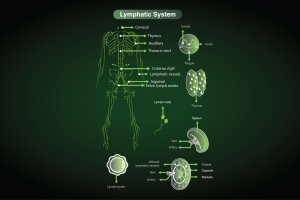From ancient times to modern research, the humble date has proven to be a nutritional powerhouse that can improve your health in countless ways.

Musa Sattar, UK
Ramadan is a month-long period of spiritual reflection, self-improvement, and heightened devotion for Muslims all over the world. As the sun sets, marking the end of another day of fasting during Ramadan, families and friends gather for iftar (the breaking of the fast). Among the delicious spread of food, the golden-brown colour of small, wrinkled fruits catches the eye. These are dates, a fruit cherished for centuries and commonly eaten during Ramadan for breaking the fast. As, it is mentioned in Jami’ at-Tirmidhi that the Holy Prophet (sa) would break the fast with fresh dates before performing Salat.
But why are dates so popular during Ramadan, and what makes them so special? Let’s explore the fascinating history of dates and discover some of the remarkable benefits of consuming these small yet mighty fruits.
Historical Significance of Dates
The date palm tree, scientifically known as Phoenix Dactylifera, has been cultivated for its delicious edible fruits for thousands of years in many parts of the world. Dates have been used throughout history as food and medicine. Dates are a versatile fruit that can be eaten fresh or dried, stuffed or plain, mashed or chopped. They are a nutritious food source that is high in fibre, antioxidants, and various nutrients. They were a staple food of the ancient Egyptians and were used as a natural sweetener in cooking and baking. Dates have also been used for medicinal purposes. Around 130-200 AD, the famous physician Claudius Galen studied the date palm tree and praised dates for their great value as food and medicine.
The fruit holds great significance in Islam, both historically and religiously. The date palm is considered a blessed tree in Islam, and it is described in the Holy Qur’an as a symbol of growth and sustenance.
‘And from the date-palm, out of its sheaths, come forth bunches hanging low… Look at the fruit thereof when it bears fruit, and the ripening thereof. Surely, in this are Signs for a people who believe.’ (Holy Qur’an, 6:100)
Dates are also mentioned in Hadith, the sayings and actions of the Holy Prophet (sa), as a source of nutrition and medicine.
It is stated in one narration that Hazrat Saad (ra) bin Abi Waqas relates, ‘When I fell ill in Mecca, the Holy Prophet (sa) came to visit me. When he placed his hand on my chest, I felt the coolness of his hand upon my heart. Placing his hand, he said, ‘You have an ailment of the heart. Go to Harith bin Kaladah, brother of Banu Thaqif; he is a physician. Tell him to take seven Ajwa dates from Medina and crush them along with their pits and give it to you to drink as a medicine.’
The Nutritional Value of Dates
During fasting, it’s essential to consume nutrient-dense foods that can provide sustained energy throughout the day. Dates are sweet but they are also a nutritional powerhouse. Although dates are 70% sugar-packed, many date varieties have low glycaemic index (GI) (indicates the effect of food to blood sugar (glucose) level) and contain polyphenols compounds with antioxidant, anti-inflammatory properties that can protect the body from inflammation. The amount of polyphenols in dates is higher than most other fruits and vegetables. They are a rich in fibre, which not only satisfies one’s sweet cravings but also helps in keeping a person full for a longer time. Additionally, dates provide important nutrients that are essential for the body, such as vitamin A, vitamin B-6 and C and minerals such as calcium, magnesium, copper, sodium, phosphorus, zinc, selenium, fluorine, potassium, and iron. They are a great source of potassium, which is an electrolyte that aids in regulating blood pressure and preventing muscle cramps. Date fruits contain protein (approximately 3%) and 23 different amino acids, some of which are not commonly found in other fruits. Including dates in a person’s diet can be a good way to get more dietary fibre, as just 100 grams or a quarter cup of dates can provide 22% of the recommended daily intake of fibre.
Digestive Benefits of Dates
Dates are a standout fruit due to their unique blend of bioactive compounds, which offer several digestive benefits. Research has shown that the high fibre content in dates can help relieve constipation and regulate diarrhoea. The insoluble fibre in dates can facilitate the movement of food through the digestive tract, making them particularly beneficial for those with constipation. In fact, consuming dates can increase bowel movement frequency and reduce the time stool spends in the gut. Notably, dates act as prebiotics, promoting the growth of healthy gut bacteria and supporting digestive health. Moreover, the fibre in dates may aid in blood sugar control. Given their high fibre content, dates make an excellent functional food for promoting satiety and relieving constipation.
Energy-Boosting Benefits of Dates
Dates are an excellent source of energy, owing to their high sugar content comprising primarily of fructose and glucose. Being rich in fibre, potassium, and antioxidants they can aid in controlling blood sugar levels and enhancing heart health. Furthermore, several studies suggest that dates possess vital vitamins and minerals, including vitamin B6 and iron, which can boost metabolism and alleviate fatigue. Nonetheless, it is crucial to monitor portion size when consuming dates since they are high in calories and overeating can lead to weight gain. All in all, the amalgamation of sugar, fibre, and nutrients in dates contributes to their energy-boosting advantages.
Dates and Weight Management
Dates are a nourishing food that may assist in weight control, as well as related health conditions. Dates are rich in fructose, a sugar that is twice as sweet as glucose. The high fructose and fibre content in dates help to regulate blood sugar and cholesterol levels. Dates have the potential to lower glucose levels due to presence of the polyphenols, flavonoids, and antioxidants. Furthermore, dates have a low glycaemic index GI, and may be helpful in reducing the risk of type 2 diabetes.
Dates and Heart Health
Dates contain polyphenols, specifically flavonoids, along with certain micronutrients and dietary fibre. These components can affect vascular health and potentially reduce heart disease in humans. Studies suggest that eating date products or their polyphenol fractions appears to improve cardiovascular health by positively impacting plasma lipid levels, oxidative stress, and inflammation.
Dates Improve Fertility
Several studies suggest that date palm has the potential to be a broad therapeutic resource that can improve fertility in both men and women. In men, it can positively impact hormonal levels, seminal vesicle parameters, sperm motility, count, and viability. In women, dates have shown promising effects on reproductive parameters such as the oogenesis process, oocyte strengthening, hormone regulation, and pregnancy strengthening and may also reduce the need for labour augmentation and preventing postpartum haemorrhage.
Tips for Incorporating Dates into Your Diet
Incorporating dates into your diet is easy and delicious. Their versatility enables dates to be consumed in many ways. For example, try adding chopped dates to oatmeal or yoghurt, using date syrup as a natural sweetener in baking, or enjoying a handful of dates as a healthy snack. Just remember to watch your portion sizes, as dates are high in natural sugars and calories.
Conclusion
It is noteworthy that the Holy Prophet (sa) recommended to eat date and use as medicine, centuries before scientific research on the topic was conducted. However, our understanding of the active components and pharmaceutical effects of dates remains limited even today.
Research has shown that the date palm contains a wide range of bioactive compounds, including flavonoids, phenolic acids known for their antioxidant and anti-inflammatory properties. The synergy of these compounds provides the health benefits associated with the plant. Dates are a versatile food that can be eaten on their own or used in a variety of recipes. They are packed with essential nutrients that can help maintain energy levels, aid digestion, and promote overall health. With their rich history and impressive nutritional profile, it’s no wonder that this humble fruit has been a staple food in many cultures for thousands of years.
Thus, as Muslims break their fast with dates during Ramadan, they are not only following a long-standing tradition but also reaping the benefits of a nutritious and healthy food. So next time you reach for a sweet treat, consider reaching for a handful of dates instead. Your body may thank you for it.
About the Author: Musa Sattar has an MSc in Pharmaceutical Analysis from Kingston University and also serves as the Assistant Manager of The Review of Religions and the Deputy Editor of the Science & Religion section.




Add Comment